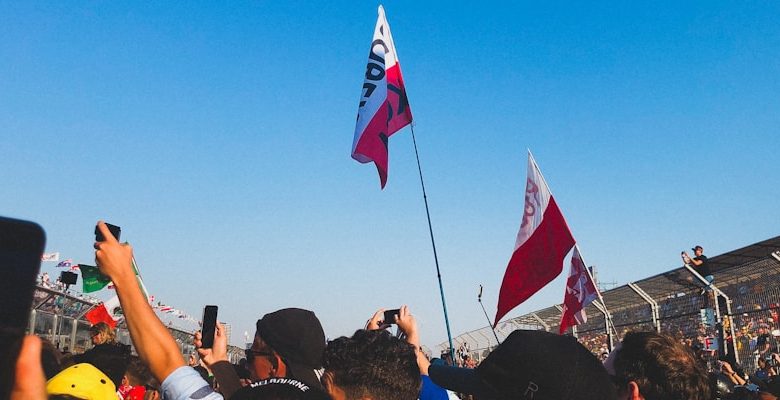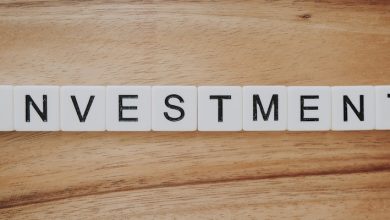The Role of DAOs in Shaping the Future of DeFi Governance

- Understanding the Basics of Decentralized Autonomous Organizations (DAOs)
- The Evolution of DeFi Governance: From Centralized to Decentralized Models
- Challenges and Opportunities in Implementing DAOs for DeFi Governance
- Exploring the Potential Impact of DAOs on Traditional Governance Structures
- Case Studies: Successful Implementation of DAOs in DeFi Projects
- The Road Ahead: How DAOs Will Continue to Influence the Future of DeFi Governance
Understanding the Basics of Decentralized Autonomous Organizations (DAOs)
Decentralized Autonomous Organizations (DAOs) are a groundbreaking concept in the realm of decentralized finance (DeFi) governance. DAOs are essentially self-governing entities that operate through smart contracts on the blockchain, without the need for centralized control. These organizations are run by a community of stakeholders who collectively make decisions through voting mechanisms encoded in the smart contracts.
One of the key features of DAOs is their transparency and immutability. Since DAOs are built on blockchain technology, all transactions and decisions are recorded on a public ledger that is accessible to anyone. This level of transparency helps to build trust among members of the organization and ensures accountability in decision-making processes.
Another important aspect of DAOs is their ability to operate without a central authority. Instead of relying on a single entity to make decisions, DAOs allow for decentralized decision-making through voting mechanisms. This not only distributes power more evenly among stakeholders but also reduces the risk of corruption or manipulation.
Furthermore, DAOs are designed to be autonomous, meaning that they can execute actions and transactions automatically based on predefined rules set out in the smart contracts. This automation streamlines decision-making processes and reduces the need for human intervention, making DAOs more efficient and cost-effective.
In conclusion, DAOs represent a new paradigm in decentralized governance, offering a transparent, decentralized, and autonomous way for communities to govern themselves. As the DeFi space continues to evolve, DAOs are likely to play an increasingly important role in shaping the future of governance in the digital economy.
The Evolution of DeFi Governance: From Centralized to Decentralized Models
The evolution of decentralized finance (DeFi) governance has been a fascinating journey, moving from centralized to more decentralized models over time. In the early days of DeFi, projects were often governed by a small group of individuals or a single entity, making decisions on behalf of the entire community. This centralized approach led to issues of trust, transparency, and potential conflicts of interest.
As the DeFi space matured, the concept of decentralized autonomous organizations (DAOs) emerged as a powerful alternative to centralized governance models. DAOs are essentially smart contracts that allow for the creation of decentralized decision-making structures, where token holders can vote on proposals and changes to the protocol. This shift towards DAOs has helped to increase transparency, reduce the risk of manipulation, and empower the community to have a greater say in the governance of DeFi projects.
With the rise of DAOs, DeFi governance has become more inclusive, democratic, and resilient. Token holders now have the opportunity to participate in the decision-making process, shape the future of the project, and hold the governance system accountable. This shift towards decentralized governance models has the potential to revolutionize the way that DeFi projects are managed and governed, creating a more equitable and transparent ecosystem for all participants.
Overall, the evolution of DeFi governance from centralized to decentralized models through the use of DAOs marks a significant step forward in the development of the DeFi space. By embracing decentralized governance structures, projects can foster greater community involvement, enhance transparency, and ultimately build more robust and sustainable decentralized financial systems for the future.
Challenges and Opportunities in Implementing DAOs for DeFi Governance
Implementing Decentralized Autonomous Organizations (DAOs) for DeFi governance presents both challenges and opportunities. On one hand, DAOs can provide a transparent and decentralized way for the community to participate in decision-making processes. This can help in promoting inclusivity and reducing the influence of centralized entities. However, there are also challenges that need to be addressed in order for DAOs to be effectively implemented in DeFi governance.
- One of the challenges is the technical complexity involved in setting up and running DAOs. This requires expertise in blockchain technology and smart contract development, which may be a barrier for some participants.
- Another challenge is ensuring the security and integrity of DAOs. Given the value at stake in DeFi protocols, it is crucial to have robust security measures in place to prevent attacks and vulnerabilities.
- Moreover, there is a need to establish clear governance structures and mechanisms within DAOs to ensure efficient decision-making and conflict resolution.
Despite these challenges, implementing DAOs for DeFi governance also presents exciting opportunities. DAOs can enable greater community engagement and empowerment, leading to more decentralized and resilient governance systems. They can also promote innovation and experimentation in DeFi protocols, driving the ecosystem forward.
Exploring the Potential Impact of DAOs on Traditional Governance Structures
Exploring the potential impact of decentralized autonomous organizations (DAOs) on traditional governance structures is crucial in understanding the future of decentralized finance (DeFi) governance. DAOs have emerged as a novel way to organize and govern decentralized systems without centralized control. These entities are governed by smart contracts and operate based on consensus mechanisms, allowing for transparent and democratic decision-making processes.
DAOs have the potential to disrupt traditional governance structures by providing a more efficient and inclusive way to manage decentralized systems. By allowing stakeholders to participate directly in decision-making processes through voting mechanisms, DAOs can help eliminate the need for intermediaries and reduce the risk of corruption. This shift towards decentralized governance can lead to increased transparency, accountability, and trust within DeFi ecosystems.
Furthermore, DAOs can enable greater innovation and experimentation within DeFi governance by allowing for the creation of new governance models and mechanisms. These entities can adapt quickly to changing market conditions and user needs, making them more resilient and adaptable compared to traditional governance structures. As a result, DAOs have the potential to shape the future of DeFi governance by promoting decentralization, autonomy, and community-driven decision-making.
Case Studies: Successful Implementation of DAOs in DeFi Projects
Several DeFi projects have successfully implemented DAOs to enhance their governance structures and decision-making processes. Let’s explore some case studies that demonstrate the effectiveness of DAOs in shaping the future of DeFi:
- Uniswap: Uniswap, a popular decentralized exchange (DEX) protocol, introduced a DAO to allow token holders to vote on key decisions such as fee adjustments and protocol upgrades. This decentralized governance model has enabled the community to have a say in the direction of the project, leading to increased transparency and accountability.
- Compound: Compound Finance, a leading DeFi lending platform, implemented a DAO to manage its protocol parameters, such as interest rates and collateral factors. By leveraging the wisdom of the crowd, Compound’s DAO has been able to adapt to changing market conditions and optimize the platform for its users.
- Aave: Aave, a decentralized lending platform, has also embraced the use of DAOs to govern its protocol. Through its Aave Improvement Proposals (AIPs) process, the community can propose and vote on changes to the platform, ensuring that decisions are made in a transparent and inclusive manner.
These case studies highlight how DAOs can revolutionize governance in DeFi projects, empowering users to participate in decision-making and shape the future of the ecosystem. As more projects adopt DAOs, we can expect to see increased decentralization and community involvement in the DeFi space.
The Road Ahead: How DAOs Will Continue to Influence the Future of DeFi Governance
Looking ahead, DAOs will undoubtedly play a pivotal role in shaping the future of DeFi governance. These decentralized autonomous organizations have already proven their effectiveness in decision-making processes within the DeFi ecosystem. As we continue to witness the growth of DeFi platforms and the increasing complexity of governance mechanisms, DAOs will provide a decentralized and transparent framework for stakeholders to participate in governing protocols.
One of the key advantages of DAOs is their ability to enable a more inclusive and democratic governance model. By allowing token holders to vote on proposals and participate in key decisions, DAOs empower community members to have a say in the direction of DeFi projects. This level of transparency and inclusivity fosters trust among stakeholders and helps ensure that governance decisions align with the best interests of the community.
Furthermore, DAOs offer a level of efficiency and scalability that traditional governance models struggle to achieve. Through the use of smart contracts and automated processes, DAOs can streamline decision-making and reduce the potential for human error or bias. This not only improves the overall governance structure of DeFi protocols but also enhances the speed at which decisions can be made, allowing projects to adapt more quickly to changing market conditions.
As we look to the future, it is clear that DAOs will continue to evolve and influence the trajectory of DeFi governance. By leveraging the power of decentralized decision-making, DAOs have the potential to revolutionize the way in which DeFi platforms are governed, ultimately leading to a more resilient, transparent, and community-driven ecosystem.



